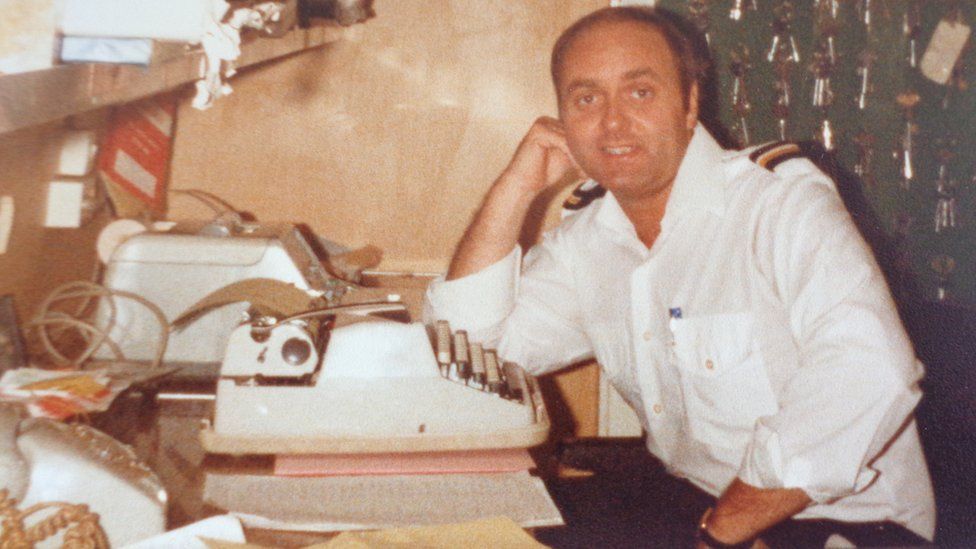
Imagine being told that your day job was being uprooted and moved 8,000 miles to the edge of a warzone. In April 1982 the crew of a car and passenger ferry received this exact news when it heard it was heading for the Falklands War.
Keith Thompson, from Hull, was 32 and working as an assistant purser aboard the North Sea Ferry Norland. The car ferry made daily sailings from the Humber Estuary to the Netherlands. Keith was in charge of hospitality and catering on the vessel.
One day, after dropping off its 1,200 passengers at Hull, the civilian crew was ordered to gather for an announcement.
"The captain got the officers and crew together and said we'd been taken over by the Ministry of Defence", Keith recalls.
Shortly before this, on 2 April 1982, Argentine forces had invaded the Falkland Islands some 8,000 miles (12,900 km) from Hull. The isolated and sparsely-populated islands in the south-west Atlantic Ocean are a British territory and have been the subject of a long-running sovereignty dispute between Britain and Argentina. The invaders hoped to stake a claim.
Norland had been pressed into action as a troop ship for the taskforce sent to recover the Falklands. Its crew was asked to volunteer to go on the journey. No-one declined, says Keith.
"It was gut-wrenching, but what touched us was the night of the sailing all Hull came out and all our families to see us off," he says.
"My wife, two kids, mother and father were on the quay side and I stood on the back end [of the ship] to see my family as long as I could.
"It was heart-breaking saying goodbye to my children and then just slipping away into the darkness."
And, with that, the ship sailed off to war.
Keith's immediate thoughts turned to the logistics of sustaining The Second Battalion Parachute Regiment (2 PARA), serving 3,000 meals a day to those on board.
The long voyage was rough, but Keith had first gone to sea at 15 as a galley boy on deep-sea trawlers around Iceland, so being in choppy seas held few terrors for him.
He says Norland was "in her element and as strong as an ox" on the voyage south and, during storm force 10 and 11 gales, the ship's escorts had flashed to ask it to slow down.
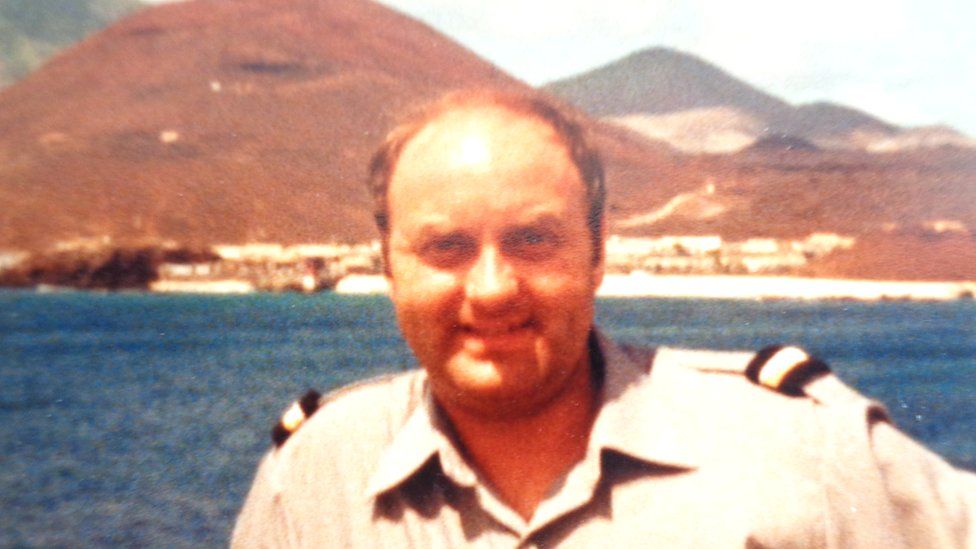
At the mid-way staging post on the Ascension Islands the crew was given another chance to leave the ship, but again no-one took up the offer.
Nevertheless, former trawlerman Keith says he had to write a letter from Ascension and told to make a will "just in case".
"I wrote to my wife saying: 'I want you to take care of yourself. I will be apart from you for a while - please look after my garden," he says. "Make sure the children are OK and tell them every day I love them. And if anything does happen always know I love you constantly."
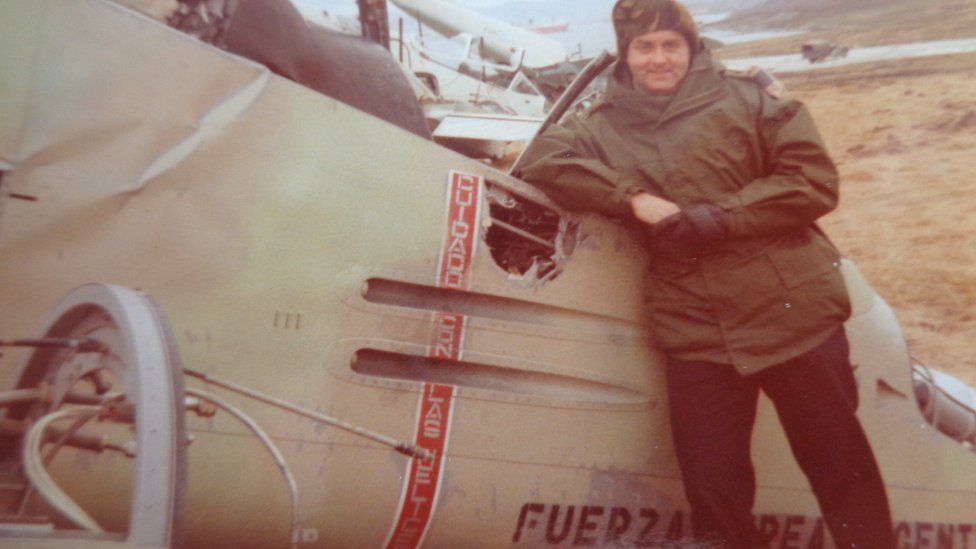
As they drew nearer Keith says the adrenaline had begun to kick in over what was to come, but the crew had work to do and focusing on those jobs got them through.
And then the ship crept under cover of darkness close to its destination - San Carlos Water just off east Falkland.
"Our anchorage in the dead of night was completely silent - we didn't even know where we were and we then had to drop both anchors," Keith says. "They had seized due to the bad weather and the crew had to hit the anchor chains with hammers."
The crew held its collective breath as the hammering boomed out, breaking the silence, Keith recalls.
Then, in a bizarre burst of normality the ship's PA system bing-bonged into life and the ship's captain, Don Ellerby, calmly broadcast to the troops, for all the world as if on a day trip to Rotterdam.
"I'd like to wish the parachute regiment a safe journey and we'll be waiting for you."
"Day-break came and we saw we were surrounded by mountains and we saw all the other ships there - then all hell broke loose," Keith says.
There were eight or nine "onslaughts of Argentinian attacks" and two 500 lbs (226 kg) bombs landed near enough to "shake the ship to bits", he said.
"I thought my days were up", Keith admits.
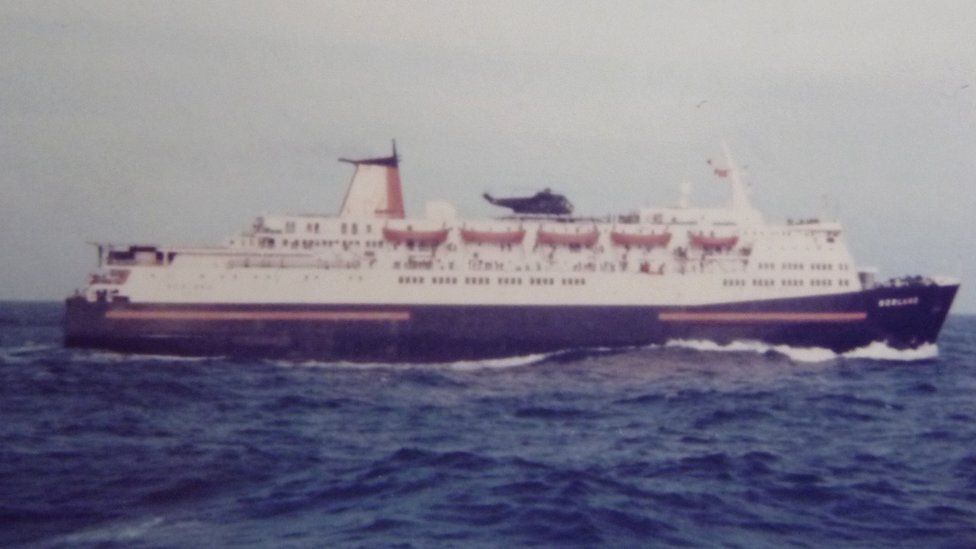
He also recalls being on the ship's bridge and seeing an Argentine Skyhawk aircraft "whizz by and then just explode, It's a thing you can't forget, just seeing an aircraft just disappear in bits".
And yet "camaraderie, laughter and jokes were abundant" onboard the Norland, he says. Keith and all his crewmates were made honorary paras, each receiving a beret from the regiment.
After the fighting, when the soldiers of 2 Para were welcomed back on board to pick up their stowed belongings, Keith supervised the collection.
He noticed case after case that was not picked up until 18 remained.
"The men were killed in action. That really hit me."
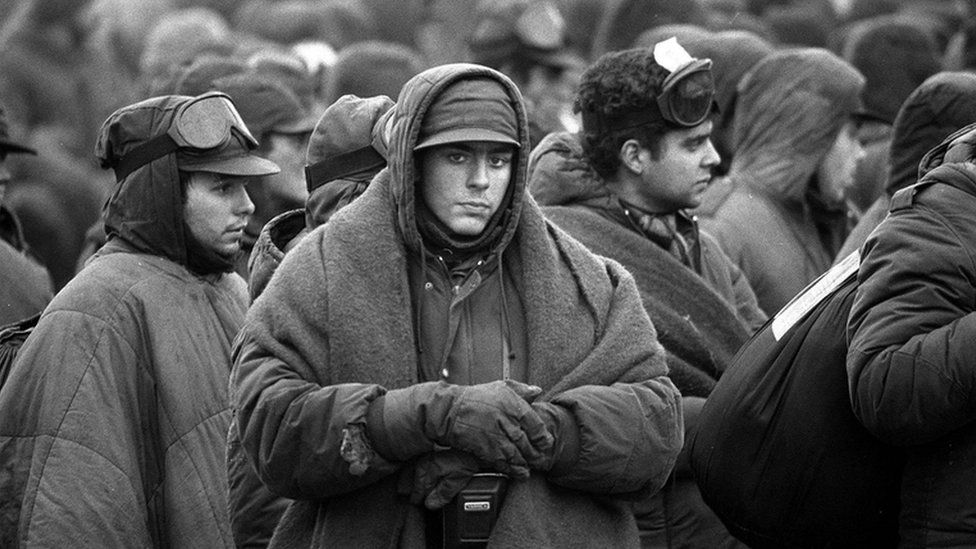
And the Norland had another unusual role to play before it returned home, taking about 1,000 dehydrated and hungry Argentine prisoners back to the mainland.
Some of them told Mr Thompson they were conscripted students who had never previously fired a rifle in anger.
When the ship put the PoWs ashore in Montevideo, Uruguay, Keith says his "hand was red-raw as every Argentinian that went down that gangplank shook my hand."
"That's how strange war was, really. They'd tried to kill us all and the next minute we were all friends."

The conflict
- Britain has controlled the Falklands since 1833
- Argentina claims the territory - which it calls the Malvinas - saying it inherited rights to them from Spain
- Argentinian forces invaded the Falkland Islands on 2 April 1982
- A British taskforce was sent to the area and regained control of the islands in June
- There were 255 British servicemen who died in the Falklands War during the 74-day conflict
- Three islanders also died
- The number of Argentinian dead was estimated at about 650.

Keith's story is taken from My Moment in History - a BBC Local Radio podcast focusing on people whose lives have been affected by the Falklands War.
- The 'Love Boat' - Hear Keith talk about his experience of the war
- Paratrooper PTSD - Tam Noble describes the Battle of Mount Longdon - one of the conflict's fiercest confrontations
- Growing up around land mines - Falkland islander Tamsin McLeod discusses the legacy of the war


Follow BBC East Yorkshire and Lincolnshire on Facebook, Twitter, and Instagram. Send your story ideas to yorkslincs.news@bbc.co.uk.
Related Internet Links
https://news.google.com/__i/rss/rd/articles/CBMiNWh0dHBzOi8vd3d3LmJiYy5jby51ay9uZXdzL3VrLWVuZ2xhbmQtaHVtYmVyLTYwOTE0Mjcw0gE5aHR0cHM6Ly93d3cuYmJjLmNvLnVrL25ld3MvdWstZW5nbGFuZC1odW1iZXItNjA5MTQyNzAuYW1w?oc=5
2022-04-02 06:36:21Z
1358180951
Tidak ada komentar:
Posting Komentar